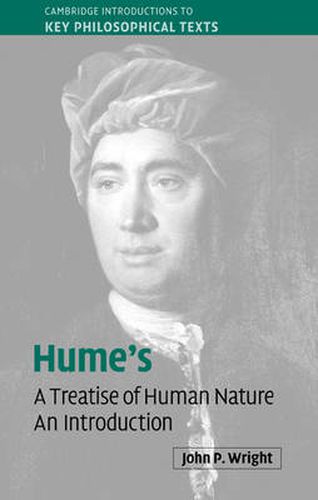Readings Newsletter
Become a Readings Member to make your shopping experience even easier.
Sign in or sign up for free!
You’re not far away from qualifying for FREE standard shipping within Australia
You’ve qualified for FREE standard shipping within Australia
The cart is loading…






David Hume’s A Treatise of Human Nature (1739-40) presents the most important account of skepticism in the history of modern philosophy. In this lucid and thorough introduction to the work, John P. Wright examines the development of Hume’s ideas in the Treatise, their relation to eighteenth-century theories of the imagination and passions, and the reception they received when Hume published the Treatise. He explains Hume’s arguments concerning the inability of reason to establish the basic beliefs which underlie science and morals, as well as his arguments showing why we are nevertheless psychologically compelled to accept such beliefs. The book will be a valuable guide for those seeking to understand the nature of modern skepticism and its connection with the founding of the human sciences during the Enlightenment.
$9.00 standard shipping within Australia
FREE standard shipping within Australia for orders over $100.00
Express & International shipping calculated at checkout
David Hume’s A Treatise of Human Nature (1739-40) presents the most important account of skepticism in the history of modern philosophy. In this lucid and thorough introduction to the work, John P. Wright examines the development of Hume’s ideas in the Treatise, their relation to eighteenth-century theories of the imagination and passions, and the reception they received when Hume published the Treatise. He explains Hume’s arguments concerning the inability of reason to establish the basic beliefs which underlie science and morals, as well as his arguments showing why we are nevertheless psychologically compelled to accept such beliefs. The book will be a valuable guide for those seeking to understand the nature of modern skepticism and its connection with the founding of the human sciences during the Enlightenment.